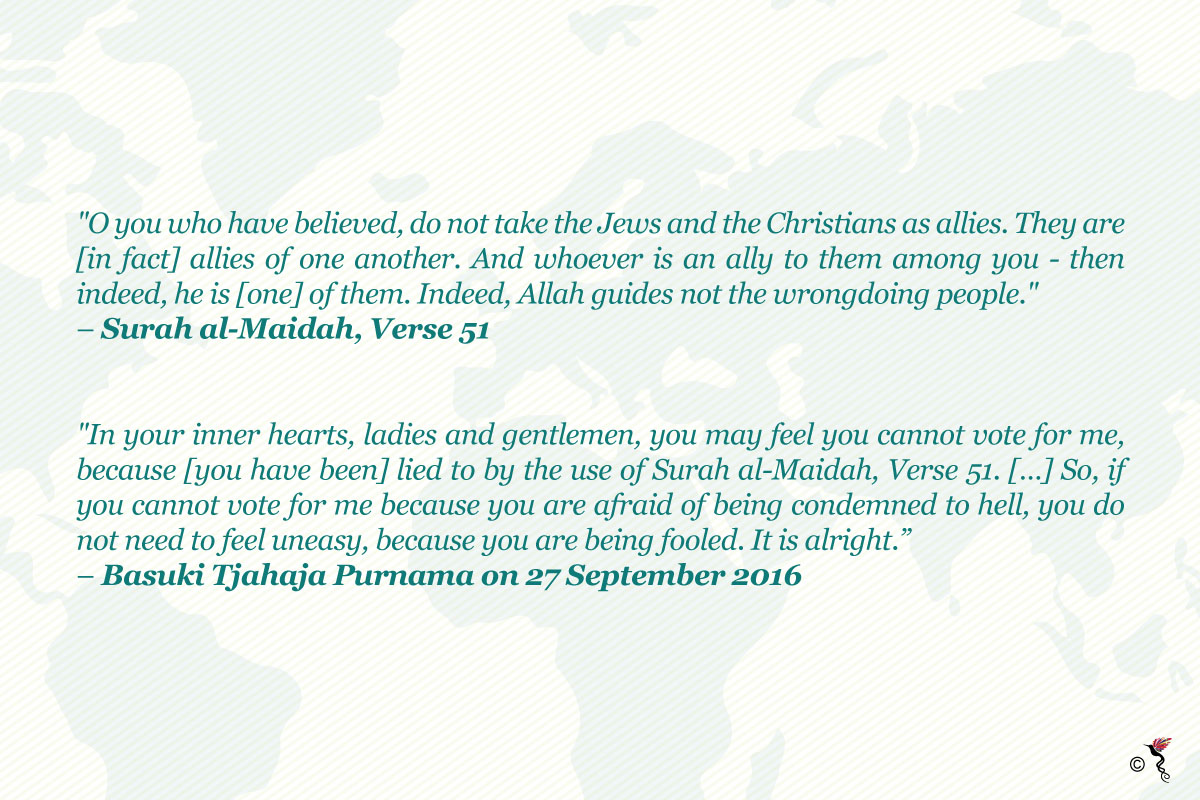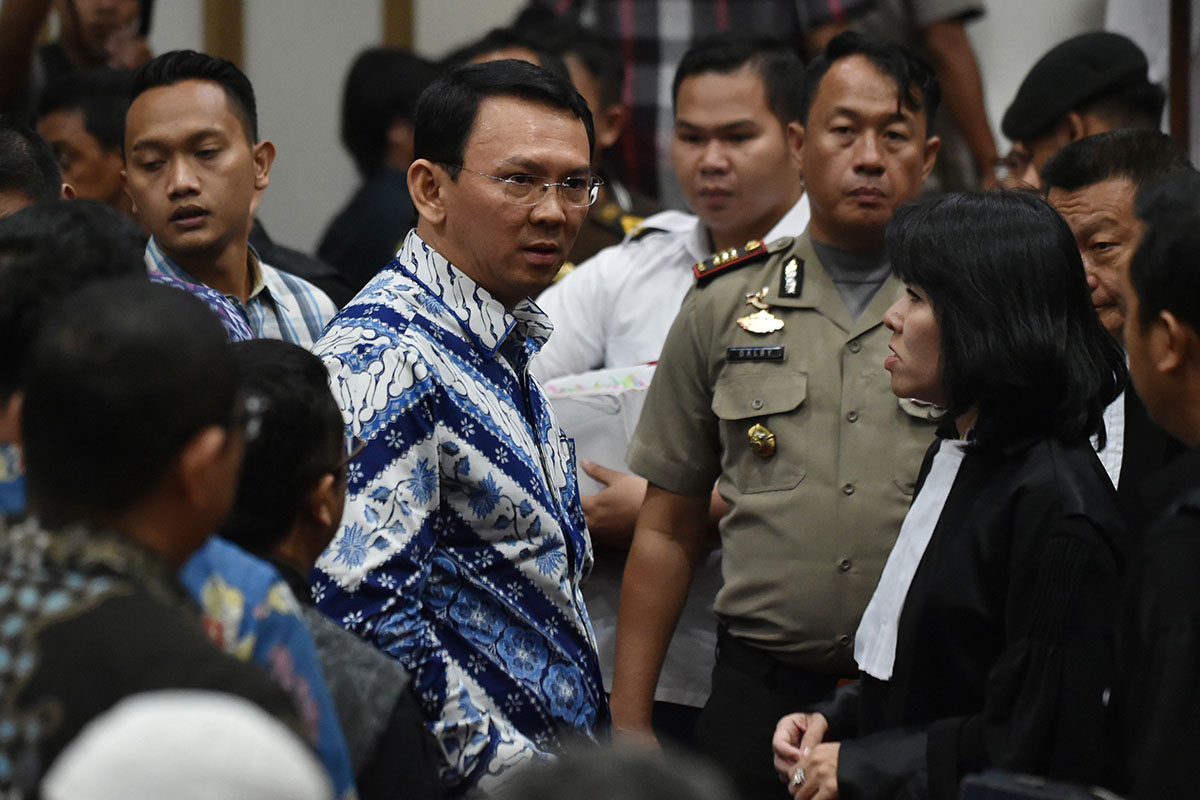A year ago today, Jakarta’s incumbent governor Basuki Tjahaja Purnama, also known as Ahok, gave a speech when he made his rounds educating the citizens on their voting rights in the Thousand Islands region of North Jakarta.
Ahok, the first Christian of Chinese descent to govern the nation’s capital city since Henk Ngantung in 1965, referenced a verse from the Islamic holy book, Al-Maidah 51. He told voters to exercise their own judgement and not be duped by religious leaders who often use the verse to their own advantage.
The ASEAN Post reached out to linguist Robert Cribb from the Department of Political and Social Change at the Australian National University to comment on the semantics of Ahok’s statement. “Ahok's claim, of course, could simply have been ignored, but Islam is acutely sensitive to the issue of blasphemy,” Cribb wrote.
“From a strict, narrow and linguistic point of view, Ahok's statement criticises his listeners for misunderstanding the Surah al-Maidah verse 51. He does not suggest that it is wrong, but only that people have misunderstood it, the problem is that Christians like Ahok do not have the authority to interpret verses of the Qur'an,” he added.

The passage of the Islamic holy book and an excerpt taken from the transcript of Ahok's "controversial" speech.
On May 9, 2017, head judge Dwiarso Budi Santiarto found Ahok guilty for the “criminal act of blasphemy” and sentenced him to two years in the Cipinang prison in East Jakarta. Ahok was charged under Article 156(a) of the Criminal Code which was enacted in 1965 during the Presidential Decree and the beginning of former Indonesian president Suharto’s New Order.
The UN (United Nations) and Amnesty International condemned the verdict. Thousands of citizens expressed their criticism on social media while many more mobilised on the streets of Jakarta on the grounds to show their support for their beloved leader. In addition to that, leading international news outlets like BBC, CNN, Al-Jazeera and The Diplomat questioned the state of Indonesia’s democracy and the country's future.
"This verdict demonstrates the inherent injustice of Indonesia's blasphemy law, which should be repealed immediately," said Champa Patel, Amnesty International's Director for Southeast Asia and the Pacific in a statement released on the day of Ahok’s trial.
As a Muslim-majority nation, the verdict also affected other religious and ethnic minorities, who criticised the Indonesian Government for not helping to protect their rights.
This case begs the question: where is the social justice for all?
